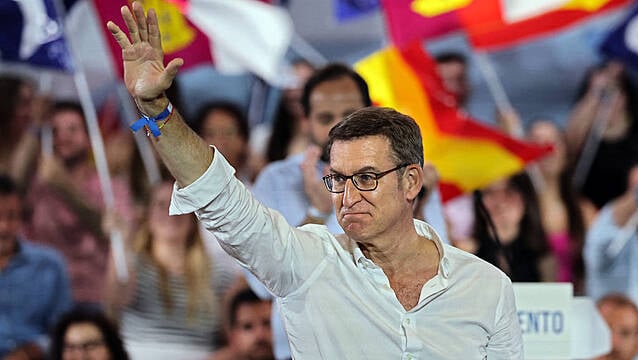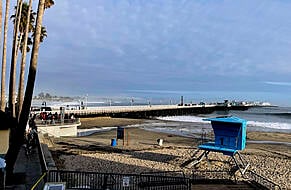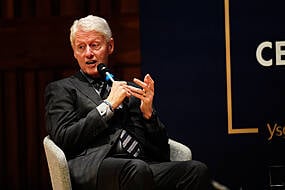The final opinion polls allowed under Spanish law before the July 23rd general election showed the conservative People's Party (PP) well ahead of the ruling Socialists on Monday, but at the very least needing the support of far-right Vox to govern.
According to the main Spanish pollsters, which are barred from publishing surveys from Tuesday, PP would garner 131-151 seats in the 350-member lower house, falling short of an outright majority of 176.
While a number of polls showed that Vox would win enough seats to guarantee the right a joint majority, the average of all surveys released on Monday by pollsters GAD3, 40db, IMOP, Sigma 2 and Simple Logica shows them getting 139 and 36 seats, respectively, or one seat short of 176.
Prime minister Pedro Sanchez's Spanish Socialist Workers' Party (PSOE) would get 98-115 seats, according to the surveys whose projections work out at an average of 108 seats.
A hypothetical alliance between PP and the anti-immigration, anti-feminist Vox could see PP leader Alberto Nunez Feijoo becoming premier, but much will depend on who comes third in a number of provinces, and how many lawmakers a few regional parties, who have supported Sanchez's minority coalition over the past four years, elect.
Vox is neck and neck with Sumar, a new alliance of far-left groups that includes Podemos, the junior ruling coalition partner. Sumar would fetch 25-39 seats, polls show.
In many electoral districts, the third spot is crucial as the fourth-placed party generally fails to elect legislators.
Mr Sanchez, who still hopes to have enough support in parliament to form a government, cancelled part of his agenda in Brussels on Monday to join a campaign rally in the northeastern town of Huesca, where the PSOE is fighting to get an extra seat.
Sumar and PSOE have said they intend to recreate the ruling coalition.
Mr Feijoo has been coy about whether he would seal an post-election alliance with Vox even though the two have teamed up in several regions and many municipalities after local elections on May 28th, in which the ruling coalition was routed.
Mr Sanchez called the snap election on May 29th, apparently hoping to wrongfoot the PP and force it to campaign while also negotiating uncomfortable coalition deals with Vox in the regions.
A national PP-Vox alliance would give far-right a role in government for the first time since the current constitution was approved in 1978 after the four decades of Francisco Franco's dictatorship.







